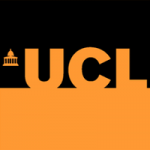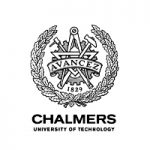项目介绍
Overview
This is the first UK PhD programme offering multidisciplinary training in the major advanced light-based methods that are transforming all areas of biomedical research. The programme will be based at UCL, a world-leading environment where many major advances in optical techniques for biology have been developed, including ultra-fast 3D 2-photon microscopy, targeted 2-photon optogenetics, low power super- resolution imaging and whole-brain optical mapping. It will also offer students outstanding opportunities to undertake internships and training with our industrial and academic partners, promoting their career development and providing them with attractive post-PhD prospects.
Research areas
The programme consists of a first year of mentoring, cohort building and skills training. During the first year students also complete rotation projects in between two-four different laboratories before deciding which to select for their PhD work.
Rotations provide students with experience in different areas of biology and different optical techniques, after which they select their PhD project for Years 2-4. Training continues in Years 2-4, but is tailored towards individual student needs. Training throughout the programme includes;
- Literacy, especially writing for diverse audiences
- Presentation skills
- Personal attributes, particularly assertiveness people-related skills social networking skills dealing with difficult situations
- Bespoke training in optical methods and cell biology
- Internships with industrial or academic partners
- Additional funding following completion of the PhD for career development
More information can be found on the department website: Optical Biology MPhil/PhD
About this degree
An Optical Biology PhD programme induction timetable and a bespoke Optical Biology Tutorial series, together with access to cell biology tutorials and other training events from partner PhD programmes and the UCL doctoral school represent some of the training events associated with this doctoral programme.
Please note that the list of modules given here is indicative. This information is published a long time in advance of enrolment and module content and availability is subject to change.
Placement
Throughout the course of their PhD, and if relevant to their research projects, students can opt to take internships with the industrial or academic partners of the Optical Biology Programme. In addition to these internships, an extra three months of funding is available to support a ‘career transition placement’. This placement is taken once the PhD is completed and provides a stepping-stone to the next phase of a student’s career.
Additional costs
For more information on additional costs for prospective students please go to our estimated cost of essential expenditure at Accommodation and living costs.
Accessibility
Details of the accessibility of UCL buildings can be obtained from AccessAble accessable.co.uk. Further information can also be obtained from the UCL Student Support & Wellbeing team.
Funding
The 4-year PhD studentship in Optical Biology is a fully funded programme that provides:
- A highly competitive stipend:
Year 1: £22,278
Year 2: £24,093
Year 3: £26,057
Year 4: £26,839
- PhD registration fees at the UK student rate
- Research expenses
- Transferable skills training
- Travel costs (including registration fees and child care or other caring responsibility cost)
- Transition costs at the end of the studentship to help you move to the next stage of your career
Scholarships relevant to this department are displayed below.
UCL Research Opportunity Scholarship
Value:UK rate fees, a maintenance stipend, conference costs and professional development package (3 years)Eligibility:UKCriteria:Based on both academic merit and financial need
For a comprehensive list of the funding opportunities available at UCL, including funding relevant to your nationality, please visit the Scholarships and Funding website.
Careers
Our unique programme will enable PhD students to achieve their full potential, challenging them intellectually, while providing the technical and personal support required to ensure their success. Hand-picked PhD committees and our emphasis on building and maintaining a strong sense of cohort, in addition to integration with the wider student body, will all serve to create a highly supportive environment. At the end of their training, students’ career progression will be supported along multiple paths via ‘career transition placements’ ensuring the students’ success continues to their next destination in industry or academia.
Employability
The unique identity of this programme lies in its combination of world class biomedical researchers partnering with outstanding engineers, physicists, chemists and computer scientists from academia and industry to create the first, wide-ranging and cohesive optical biology training programme. It will equip students to tackle major biological problems across scales, by training them in the use and development of optical methods and applying them in a range of model systems. Career development is supported by ‘career transition placements’ provided to facilitate the transition from PhD to the next workplace destination.
Networking
Their are plenty of networking opportunies open to students on the programme these include:
- Meeting with external seminar speakers, inculding a student-invited speaker
- Through internships at our academic or industrial partners
- Via the student-organised annual symposium
- By attending national/international scientific conferences
Why study this degree at UCL?
Optical Biology is an interdisciplinary field which involves developing new optical technology for studying the interaction of light (i.e. photons) with biological organisms, tissues, cells, and molecules in order to solve fundamental open questions in biology.
We are committed to being part of a positive and inclusive research environment. We believe scientific excellence must be accompanied by an improved work environment and career support for trainees.
This programme will offer students outstanding opportunities to undertake internships and training with our industrial and academic partners, promoting their career development and providing them with attractive post-PhD prospects.
Academic Partners: Hokkaido University, Institute for Genetic Medicine; Max Planck Institute of Cell Biology and Genetics; University of California, San Francisco (UCSF); Yale University
Industrial Partners: Andor Technology; Coherent; Eli Lilly; 3i; Newport; Spectra-Physics; Nikon; Perkin Elmer; Scientific Volume Imaging; Zeiss
UCL has invested heavily in world-class facilities for biological observation across scales. These advanced imaging centres –‘Super- Resolution and Light Microscopy’, ‘High-Content High-Throughput Screening’, ‘Deep and Light-Sheet Imaging’, and ‘Bioimage Informatics’ – are paired with specialised technology development laboratories that also provide teaching and training facilities. Students will be able to take advantage of this and will learn from experts in the field.
Department: Laboratory for Molecular Cell Biology
Application and next steps
Applications
Students are advised to apply as early as possible due to competition for places. Those applying for scholarship funding (particularly overseas applicants) should take note of application deadlines.
This programme requires two references. Further information regarding references can be found in our How to apply section.
Application deadlines
All applicants14 December 2020
For more information see our Applications page.
联系方式
电话: +44 (0) 20 7679 2000相关项目推荐
KD博士实时收录全球顶尖院校的博士项目,总有一个项目等着你!






